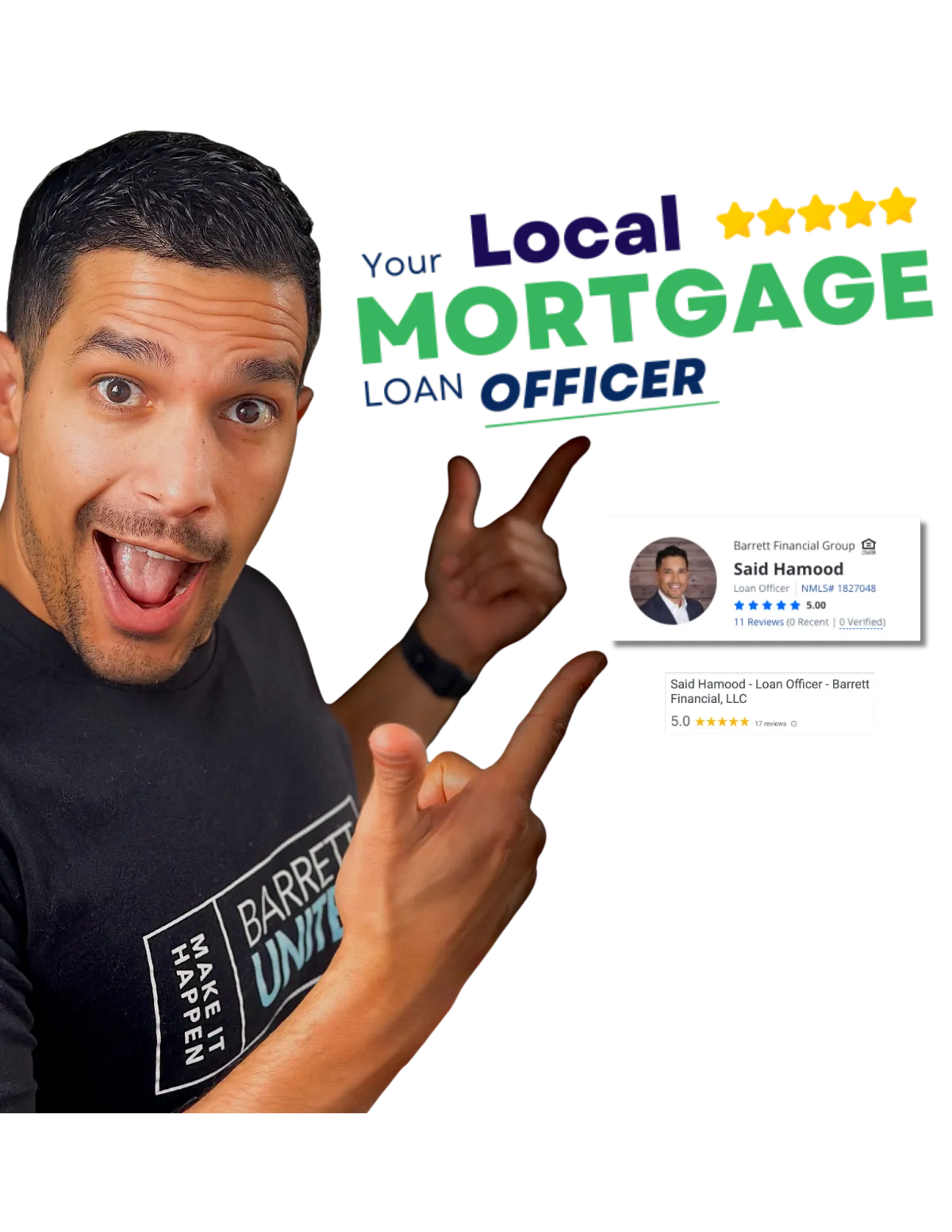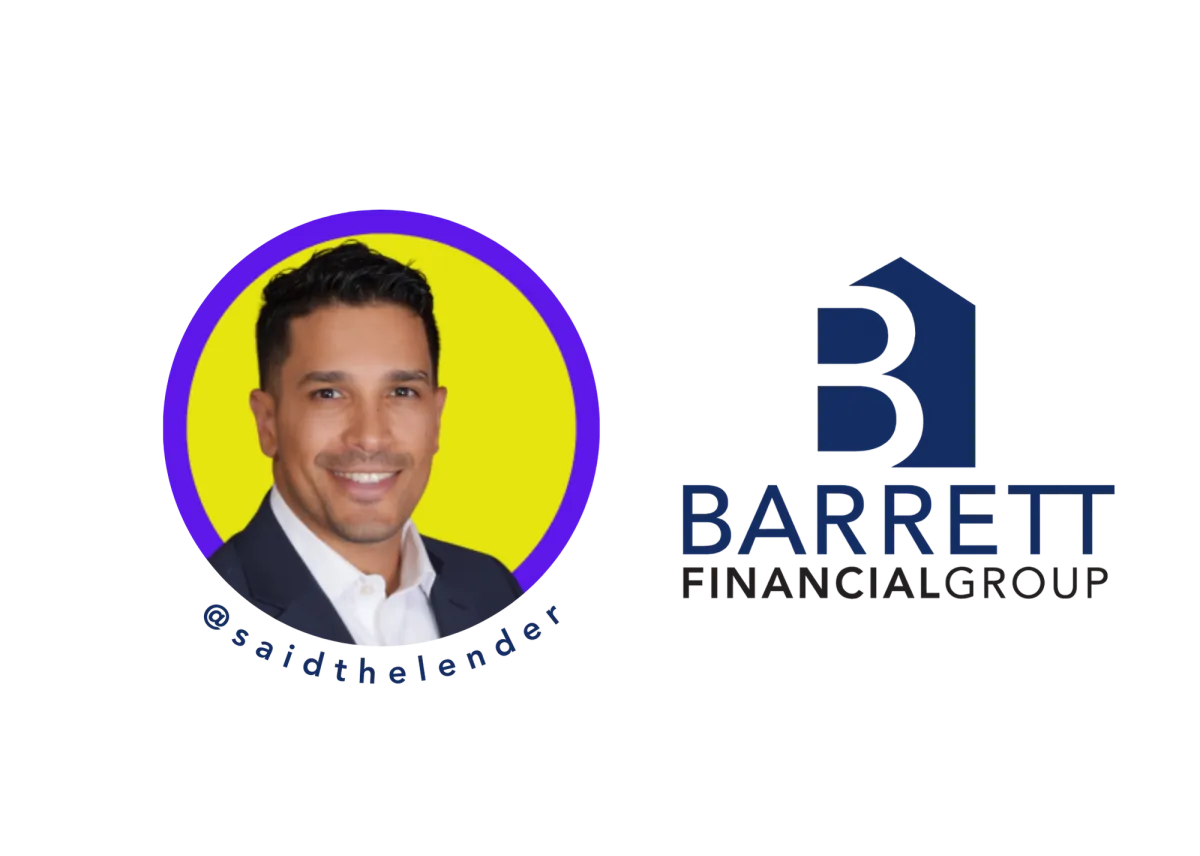
Simplifying Homeownership
See EXACTLY How Much Home You Qualify For Today!

Simplifying Homeownership
See EXACTLY How Much Home You Qualify For Today!
Learning Center

Unlock the Potential of Your Home Equity with a Digital HELOC in Seattle, WA
As a Seattle homeowner, you may be sitting on a wealth of untapped home equity, and now is the perfect time to unlock that value. With home equity levels soaring across the U.S., Seattle homeowners have a unique opportunity to take advantage of their home’s value without losing their low mortgage rates. Whether you're planning home renovations, consolidating debt, or meeting life goals, a Digital Home Equity Line of Credit (HELOC) is the flexible and cost-effective solution you need.
What is a Digital HELOC and How Does It Benefit Seattle Homeowners?
A Digital HELOC is a modern way to access your home’s equity without giving up your current low mortgage rate. Unlike a traditional cash-out refinance, a Digital HELOC allows you to borrow funds as needed and only pay interest on the amount you use. Plus, you can keep your current mortgage rate, which is a big advantage for Seattle homeowners who have historically benefited from low mortgage rates.
Why Now is the Best Time for Seattle Homeowners to Tap Into Their Home Equity
In 2024, U.S. home equity reached an all-time high of $35 trillion, and Seattle homeowners are sitting on a significant amount of that. With the average Seattle homeowner sitting on approximately $315,000 in home equity, now is an unprecedented opportunity to use that value to fund major life decisions.
Key Benefits of a Digital HELOC for Seattle Homeowners:
Keep Your Low Mortgage Rate – In Seattle’s competitive housing market, many homeowners have mortgage rates of less than 4%. A Digital HELOC allows you to access funds while keeping that low rate intact.
Affordable Borrowing – Digital HELOCs offer lower interest rates than credit cards or personal loans, making it an ideal choice for Seattle homeowners who need quick and affordable financing.
Flexibility – Whether you’re upgrading your Capitol Hill apartment, consolidating debt in Ballard, or tackling major projects in West Seattle, a Digital HELOC provides flexible access to funds whenever you need them.
Tax Benefits – In many cases, interest on a Digital HELOC may be tax-deductible if used for home improvements, making it a great option for Seattle homeowners planning a renovation.
How Can You Use Your Digital HELOC in Seattle?
A Digital HELOC gives you access to funds that you can use for a variety of purposes, all while maintaining the benefits of your current mortgage. Here are some ways Seattle homeowners can leverage a Digital HELOC:
Home Renovations – With Seattle’s real estate market booming, home improvements can increase your property value. Whether it’s updating your kitchen in Queen Anne, finishing a basement in Capitol Hill, or adding a deck in Fremont, a Digital HELOC provides the funds to make it happen.
Debt Consolidation – Seattle residents are often juggling high-interest debts such as credit cards, student loans, and personal loans. By consolidating with a Digital HELOC, you can lower your monthly payments and save on interest.
Life Goals – Whether it’s paying for a college education, starting a new business in the Pike Place Market, or building an emergency fund, a Digital HELOC allows you to fund your dreams while keeping your financials in check.
Why Choose a Digital HELOC Over Refinancing Your Seattle Mortgage?
While refinancing might seem like a simple solution, a Digital HELOC offers several key advantages, especially for those who want to maintain their low mortgage rate. Here’s a comparison of the two options:

Ready to Leverage Your Home Equity in Seattle?
A Digital HELOC is a great option for Seattle homeowners looking to use their home equity wisely. Whether you're in the heart of the city or in the quieter suburbs of Ballard or Green Lake, I can help you understand how this innovative solution can benefit you.
Reach out today to learn more about how a Digital HELOC can unlock the full potential of your home’s equity. Let’s make your home work for you, today!
What is the first step in buying a home?
The first step is understanding your budget and getting pre-approved for a mortgage. This helps you know what you can afford and shows sellers that you're a serious buyer. I can guide you through this process to make sure you're prepared and confident.

How much money do I need for a down payment?
Down payments typically range from 3% to 20% of the home’s purchase price, depending on the type of loan you qualify for. There are also programs for first-time homebuyers that may offer down payment assistance. I can help you explore your options.

What does pre-approval mean, and why is it important?
Pre-approval means a lender has evaluated your financial information and determined the loan amount you're eligible for. It’s crucial because it gives you a clear idea of your budget, helps you compete with other buyers, and speeds up the closing process once you find a home.

What types of loans are available for first-time homebuyers?
There are several loan options, including FHA loans, USDA loans, and conventional loans. The best option for you depends on factors like your credit score, income, and the location of the home. I can help you compare the options and choose the best one for your situation.

How do I know if I qualify for a mortgage?
Lenders look at factors like your credit score, income, debt-to-income ratio, and the amount of money you have for a down payment. The good news is that I work with a range of clients, from those with perfect credit to first-time buyers, to help you find the right path to homeownership.

What are closing costs, and how much should I expect to pay?
Closing costs usually range from 2% to 5% of the home's purchase price and cover fees like appraisals, inspections, and lender charges. I’ll help you understand all the costs involved so there are no surprises at the end of the process.

Can I get a mortgage if I have student loans or other debt?
Yes! Many buyers with student loans or other forms of debt still qualify for a mortgage. Lenders look at your overall financial picture, including your income and debt-to-income ratio. Let’s talk through your situation, and I’ll help you find the best solution.

How long does the home buying process take?
The process typically takes about 21 to 45 days from the time you make an offer to closing. However, this can vary depending on factors like inspections, appraisals, and the lender's processing time. I’ll keep you updated every step of the way so you know what to expect.

What happens if my offer on a home is accepted?
Once your offer is accepted, the next steps include signing a purchase agreement, scheduling inspections, and finalizing your mortgage application. From there, the lender will process your loan, and we'll work together to ensure everything is in place for a smooth closing.

How do I know if I’m ready to buy a home?
If you’re financially stable, have a reliable income, and can afford a down payment and monthly mortgage payments, you might be ready. I’ll help you assess your financial readiness and guide you through the process to ensure you’re making the best decision for your future.

What is an FHA loan?
An FHA loan is a government-backed mortgage designed to help first-time homebuyers and those with less-than-perfect credit. It typically requires a lower down payment (as low as 3.5%) and has more flexible credit requirements, making it an excellent option for those who might not qualify for conventional loans.

What is a VA loan, and who qualifies?
A VA loan is a mortgage loan backed by the U.S. Department of Veterans Affairs, designed for military service members, veterans, and certain members of the National Guard and Reserves. It typically requires no down payment or private mortgage insurance (PMI), making it a great option for those who qualify.

What is a USDA loan?
A USDA loan is a government-backed mortgage offered to homebuyers in rural and suburban areas. It requires no down payment and offers competitive interest rates. To qualify, buyers need to meet income and property location requirements, making it a great option for those looking to buy in rural areas.

What is a conventional loan?
A conventional loan is a mortgage that is not insured or backed by the federal government. These loans usually require a higher credit score and a larger down payment than FHA loans, but they come with more flexible terms and potentially lower mortgage insurance costs if you put down at least 20%.

What is a jumbo loan?
A jumbo loan is a type of mortgage that exceeds the conforming loan limits set by the Federal Housing Finance Agency (FHFA). These loans are typically used for luxury or high-value homes and require stricter credit and income qualifications. They also tend to have higher interest rates due to the larger loan amounts.

What is a fixed-rate mortgage?
A fixed-rate mortgage is a loan with an interest rate that stays the same throughout the life of the loan, typically 15, 20, or 30 years. This provides stability and predictable monthly payments, making it a popular choice for many homebuyers.

What is an adjustable-rate mortgage (ARM)?
An adjustable-rate mortgage (ARM) is a type of loan where the interest rate can change periodically based on market conditions. ARMs typically start with lower rates for the first few years and then adjust. While this can offer lower initial payments, it comes with more risk as rates can increase over time.

What is a renovation loan?
A renovation loan, like the FHA 203(k) loan, allows you to finance both the purchase of a home and the cost of repairs or renovations in one loan. This can be a great option if you want to buy a fixer-upper and make improvements to it, as it allows you to finance the project upfront.


"I educate first-time homebuyers so they can make informed decisions"
Said Hamood - Seattle Mortgage Broker - NMLS#1827048
Said Hamood | NMLS #1827048 | Barrett Financial Group, L.L.C. | NMLS #181106 | 275 E Rivulon Blvd, Suite 200, Gilbert, AZ 85297 | TX view complaint policy at www.barrettfinancial.com/texas-complaint | WA MB-181106 | Equal Housing Opportunity | This is not a commitment to lend. *All loans are subject to credit approval. | mlsconsumeraccess.org/EntityDetails.aspx/COMPANY/181106



